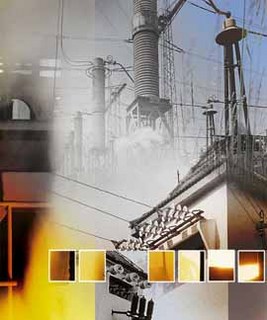Research Ministers of the EU Member States and Associated Countries, together with the European Commission, are announcing in Brussels today three new pan–European energy research infrastructures.
 Research Ministers of the EU Member States and Associated Countries, together with the European Commission, are announcing in Brussels today three new pan–European energy research infrastructures. A wind research facility is planned in Denmark, a concentrated solar power installation in Spain and a nuclear research reactor in Belgium. The overall investment is about € 1.2 billion. They will be part of the Roadmap of the European Strategy Forum on Research Infrastructures (ESFRI). The announcement will take place at the Belgian Presidency ENERI Conference, at the Square, Mont des Arts, Brussels. Energy research infrastructures play an important part in realizing the European Strategic Energy Technology (SET)–Plan.
Research Ministers of the EU Member States and Associated Countries, together with the European Commission, are announcing in Brussels today three new pan–European energy research infrastructures. A wind research facility is planned in Denmark, a concentrated solar power installation in Spain and a nuclear research reactor in Belgium. The overall investment is about € 1.2 billion. They will be part of the Roadmap of the European Strategy Forum on Research Infrastructures (ESFRI). The announcement will take place at the Belgian Presidency ENERI Conference, at the Square, Mont des Arts, Brussels. Energy research infrastructures play an important part in realizing the European Strategic Energy Technology (SET)–Plan.
European Commissioner for Research, Innovation and Science, Máire Geoghegan–Quinn, said: "Developing world–class research infrastructure in Europe, by pooling resources at EU level, is an important objective of the Innovation Union. These facilities will enable ground–breaking research and innovation and ultimately they could help to secure the EU's future energy supply. We need to bring research, technology, industry and market implementation closer together and that is the purpose of the European Strategic Energy Technology Plan."
In its updated Roadmap 2010, ESFRI has identified 50 new research infrastructures or major upgrades of existing ones, in order to stay at the forefront of research over the next 10 – 20 years. Their total construction cost amounts to some € 20 billion and their operational cost would be around € 2 billion per year.
One of the objectives of the Innovation Union is to launch by 2015 the construction of 60% of these priority European research infrastructures, primarily financed by EU Member States, but with the support of European Programmes.
The new infrastructures announced today
In Denmark the WindScanner project has the capacity to produce detailed maps of wind conditions at a wind farm covering several square kilometres. This knowledge will lead to more efficient, stronger and lighter wind turbines. The facility will be in operation from 2013 and costs will be between € 45 and 60 million. WindScanner will be operated by the Risø DTU National Laboratory for Sustainable Energy near Roskilde, leading a consortium with six other partners, from Germany, Greece, Spain, The Netherlands, Norway and Portugal
The solar research infrastructure EU–SOLARIS at the Advanced Technological Centre for Renewable Energy in Tabernas, Almeria (Spain) focuses on developing new technologies for concentrated solar power and has a construction cost of about € 80 million. Other complementary sites at several leading European laboratories – representing European countries with the most solar potential (Portugal, Italy, Greece and Turkey) and Germany (technological provider) – will be part of the new research infrastructure.
The Belgian nuclear fission research infrastructure MYRRHA, in Mol, has research capacity on the reduction of radioactive nuclear waste. The detailed engineering design of the facility is scheduled to be completed in 2014. The total construction cost is budgeted at approximately € 960 million (2010–2023). MYRRHA will be the first large facility in the world for research on radioactive spent nuclear fuel and its reduction via partitioning and transmutation. The infrastructure can also be used to test the feasibility of a new generation of nuclear power plants – the Lead Fast Reactor technology. MYRRHA is a complementary infrastructure to the Jules Horowitz Reactor (thermal spectrum reactor), under construction in Cadarache, France.
Background
Research infrastructures can be major scientific equipment, collections, archives or structured scientific information such as bio–banks, data and computing infrastructures. They are used by scientists to conduct top–level research paving the way for applying technology to solve the grand challenges that society faces today, not only in the field of energy, but also for example climate change, health, the secure supply of resources and coping with an ageing population.
The 7th Framework Programme for Research of the European Union has a budget of € 1.7 billion for research infrastructures. About € 560 million, including the € 200 million European Commission contribution to the Risk Sharing Finance Facility, of this is specifically for the development of new research infrastructures. Additional funds of € 10 billion are available from EU Structural Funds. Support for the construction of research infrastructures can also be obtained from the European Investment Bank in the form of loans.